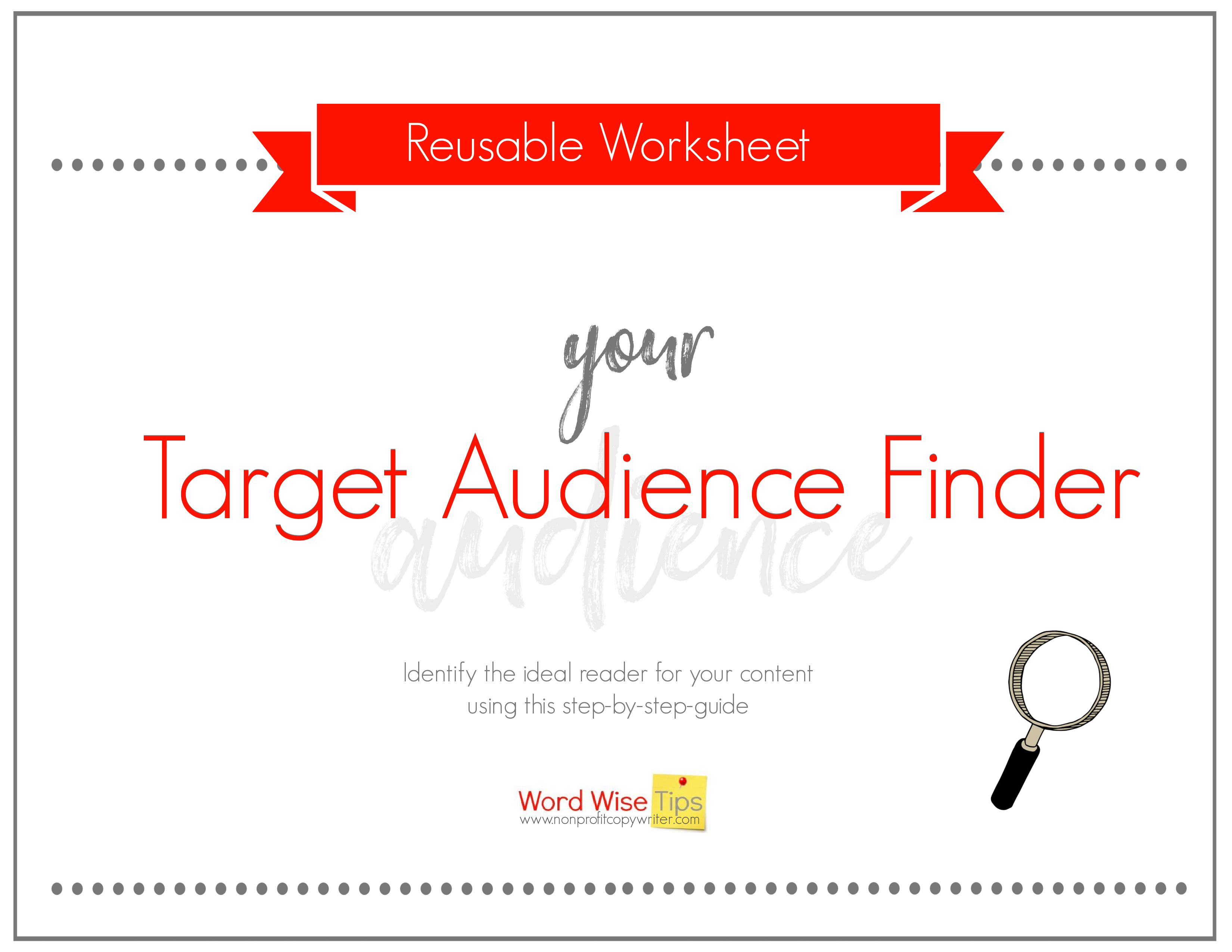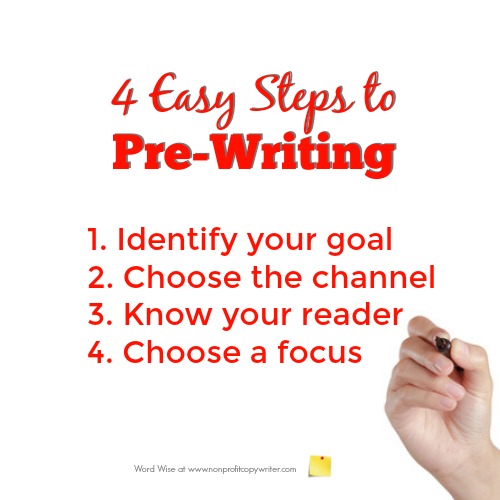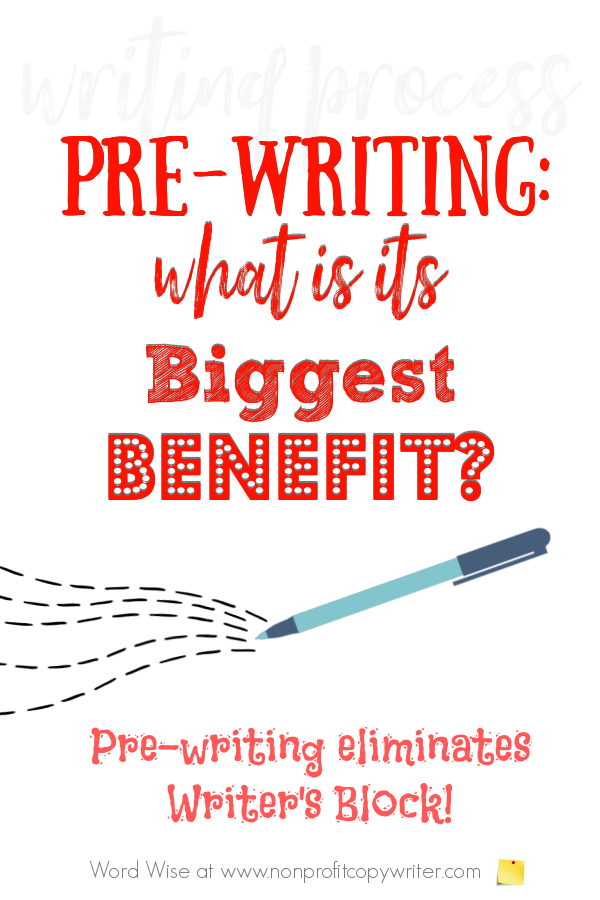Save Time: Get 5 Simple Writing Tips
you can put to use in 10 minutes
Pre-Writing: 4 Easy Steps to Make Your Writing Go Faster
Award-winning writer Kathy Widenhouse has helped hundreds of nonprofits and writers produce successful content , with 750K+ views for her writing tutorials. She is the author of 9 books. See more of Kathy’s content here.
Updated 9.23.25
Pre-writing is the key to making your writing go faster and be more focused.
It makes your writing go faster. A writing project starts with many options. Pre-work eliminates rabbit trails, helps you organize your raw material, and lets you sort out your ideas. Decisions you make in the pre-writing phase give you a sense of direction, allowing you to get from Point A (a project that needs to be written) to Point B (a completed project) in the shortest route possible.
It helps your writing be more focused. True, you’re not “officially” putting down words for your actual piece. However, the time spent in this preliminary phase is wisely invested. Pre-writing lets you avoid one of the stumbling blocks to clear writing: muddy messaging. Going a step further, be sure to save any notes you take. You will be surprised to see what you can use in your project. Leftovers can be saved in a file for another piece.
Writers develop their own formulas to follow before they write a piece. Try these 4 steps to help you find your own approach.
4 easy pre-writing steps that
make your writing go faster
1. Identify your goal
Determine the one thing you want your piece to accomplish.
- Inform. Maybe your goal is to explain a process or concept clearly. Or teach the reader how to do something through a tutorial, guide, or how-to. You may simply want to offer background knowledge, facts, or research.
- Persuade. Perhaps you want the reader to change the way she looks at a topic or become informed about a cause. You may want to convince readers to engage by clicking a link… making a purchase … posing a comment. Or your content may have a more direct marketing goal, designed to move readers through the sales funnel and encourage sign-ups, downloads, donations, or purchases.
- Entertain. Your content may be designed to make the reader laugh or smile. Tell a good story that captures attention. Or simply provide an enjoyable escape.
- Get visible. Whether your content seeks new readers through SEO – or you use your content to establish yourself as a friendly expert in your niche – you can write to increase your visibility.
Record one overarching goal you want your piece to accomplish. You can have secondary goals, especially when you’re writing a larger project like a business plan or a website, but make sure you identify your top priority so you can focus on it.
2. Choose the channel
Content format and tone differ between writing mediums. Are you writing an article, a PowerPoint presentation, an eBook, an email series?
When you identify the channel for the piece you are writing, you can zero in on your approach right away.
When you identify the channel for the piece you are writing you can zero in on your approach right away. Social media posts are short, engaging, and to the point … web copywriting uses bullets and lots of white space … grant applications must present a problem, a solution, and a case in a lengthy narrative format.
Before you write, know …
- How long your piece will be
- How it will be formatted
- Who will read it
That means you need to …
3. Know your reader
Put yourself in the reader’s shoes. What are her needs? What does she care about? How can this particular audience receive what you’re sharing?
Identify an audience avatar for this particular piece of writing. Choose one person you personally know that fits that avatar. Then, you can frame your writing to that person.
Why does this save time? You’ll avoid trying to be all things to everybody and instead, target that one person to achieve the one goal you chose in #1.

Use this worksheet to identify your content's target reader.
4. Choose one point
What’s the single most important thing you need to communicate in this piece of content? Identify one idea per piece, per web page, per tweet, or per devotional.
This requires research. And yes, it’s easy to get off track because you’re surfing and follow multiple rabbit trails. Do what I do: limit your time. Collect just 2 times the research you think you need. You can use extra for another piece of content.
Once you’ve gathered enough research to clarify your thoughts, write out your main idea. If you cannot summarize it in one sentence, then you won’t communicate it well to readers. Save the rest of your ideas for other projects.
Why does this save time? For me, this exercise is the single step that preserves minutes. When I can articulate your project’s single most important point, I can stay on target as I write. With one point, I can create a clearer outline as my roadmap.
The biggest benefit of pre-writing
All those minutes you find yourself stuck at the keyboard with nothing to say?
Pre-writing eliminates 80-90% of that for me. It is my biggest antidote to writer’s block.
- Drafting is faster. I spend less time backtracking. Ideas flow in a logical order, reducing the risk of confusing or repetitive sections.
- My content is richer. Gathering sources, jotting notes, or making connections leads to fresh angles. I’m less likely to regurgitate surface-level information, and I know what information gaps I need to fill.
- My tone is more personal. With my target reader in mind, I’m able to write to him or her just as if I’m having a conversation on paper.
Don’t be fooled into thinking pre-writing is “not really writing.” You’re doing the hard work of getting your ideas down on paper, eliminating some, and fine-tuning others.
By any stretch, that meets anybody’s definition of writing.
More about the Writing Process
My Sanity-Saving Research Tip for Writers ...
Planner or Pantser? Make 3 Steps in the Writing Process Work for You ...
7 Brainstorming Techniques for Writers ...
How To Write Faster: Use Bursts AND Binges ...
How to Narrow Your Article Main Idea ...
Avoid Panic: A Practical Way to Estimate Writing Time for a Project ...
The Writing Process: The Key to Writing Faster and Better ...
Secret of Success: Know How to Set and Achieve a Writing Goal ...
Quick Tip to Get Started Writing Strong Each Day ...
4 Writing Styles: When to Use Each One ...
Capturing ideas for writing projects: a system is the solution ...
How to Write a Thesis Statement ...
How to find the main idea of your piece before you write ...
How to Write an Introduction (or Lead, Lede, Hook) ...
Writer's Block: 3 tips for starting your writing project ...
More about the writing process on our Pinterest board ...
Return from Pre-Writing: 4 Easy Steps to Make Your Writing Go Faster
to Nonprofit Copywriter home
As an Amazon Associate I earn from qualifying purchases.
Share This Page

Named to 2022 Writer's Digest list
BEST GENRE/NICHE WRITING WEBSITE


Stop Wasting Time!
Grab your exclusive FREE guide, "5 Simple Writing Tips You Can Put to Use in 10 Minutes or Less"













